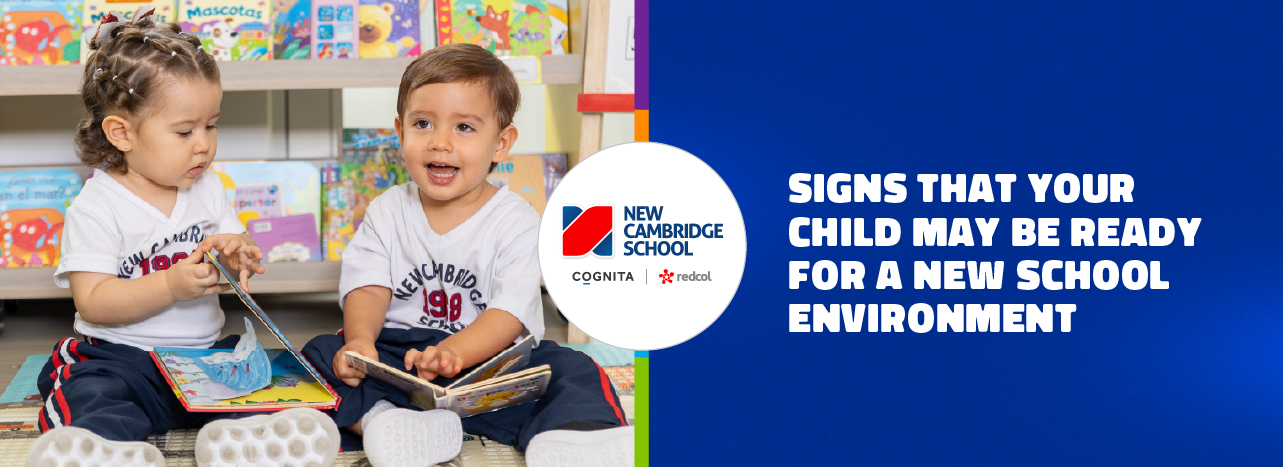Discover in this practical guide how to recognise signs of readiness, reflect together as a family, and make the best decision with peace of mind.

Every child is unique, but there are certain indicators that may help you determine whether they are prepared to take the next step:
Greater independence: shows interest in doing things on their own (getting dressed, putting things away, following simple instructions).
Interest in interaction: seeks to play with other children, start conversations, or share activities.
Natural curiosity: frequently asks questions, shows interest in books, educational games, or routines.
Ability to adapt: adjusts relatively easily to new routines, people, or environments.
Basic emotional communication: can express feelings through words or clear gestures.
🔔 Remember: it is not about ticking every box on a perfect list, but rather noticing patterns that might suggest readiness for change.

Reflecting together can give you greater emotional and practical clarity:
What kind of emotional support does our child need right now?
How do they respond to changes or new routines?
What do we expect from an educational environment?
Does our child feel safe away from home? How have they responded before in social activities or group settings?
Are we, as a family, ready to accompany this process consistently?

Based on the experience of working with hundreds of families and children, our team of educational psychologists and teachers suggests:
Observe without comparing: every child has their own pace. Avoid comparisons with siblings, cousins, or peers.
Practise short separations: if they are not yet in school, try leaving them with relatives or in short workshops to build emotional security.
Make gradual transitions: talk about school, visit the campus, explore some materials, or meet teachers before the start.
Encourage routines: setting clear times for sleeping, eating, or playing builds security and confidence.

Taking more time is also a valid decision, especially if:
The child shows high levels of anxiety at any separation.
There are no signs yet of interest in interacting with other children or following simple instructions.
The family environment is undergoing major changes (moving house, bereavement, etc.) and the child needs stability.
🔔 Delaying school entry can be a conscious, responsible, and emotionally intelligent choice.
We support your decision, without pressure
At New Cambridge School, we believe in supporting every process with empathy, clear information, and respect for each family’s timing. If this guide has helped you, we would be happy to talk with you to answer any other questions you may have.
📥 Download the free guide
Click the button below to download the full guide in PDF and share it with whomever you wish:
